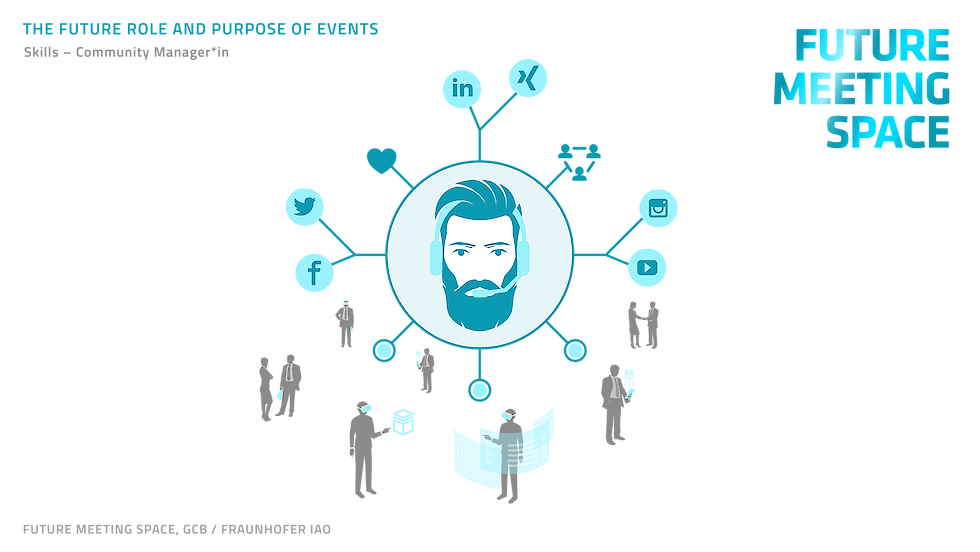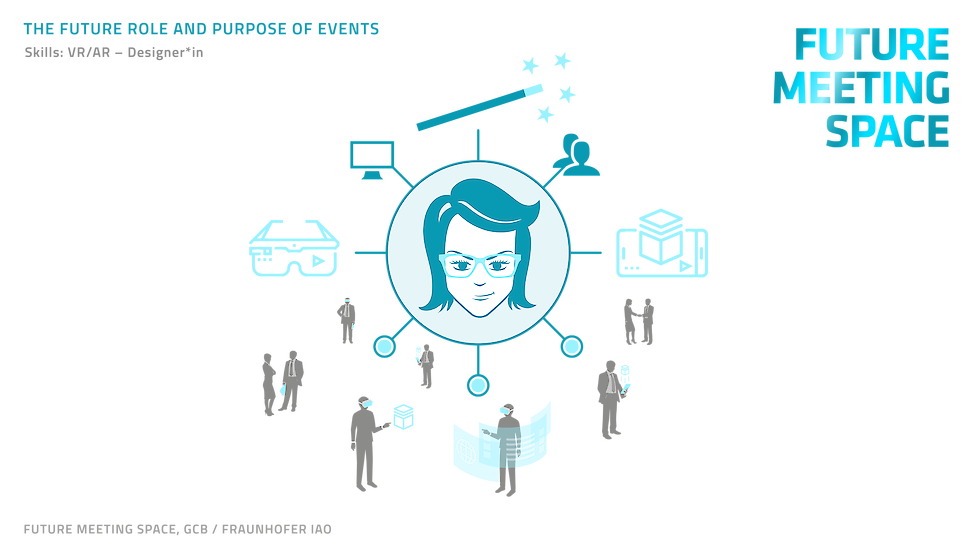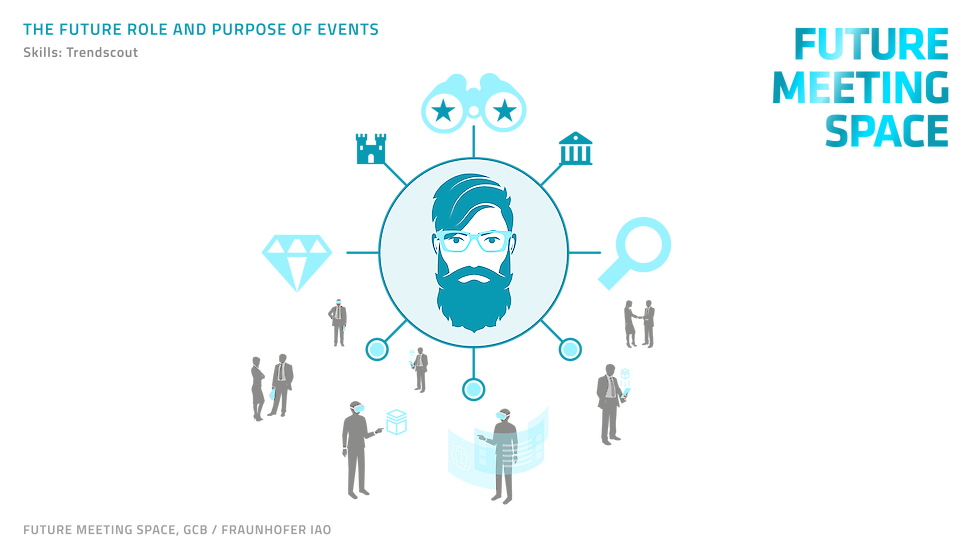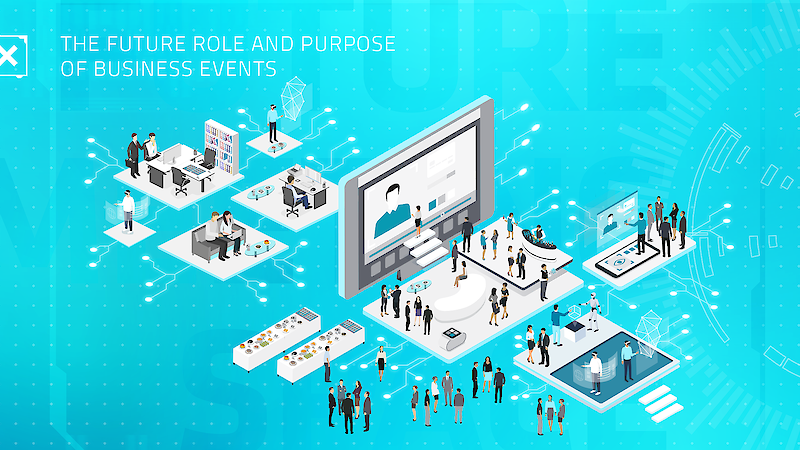Room to grow for event professionals
Why the future of events requires a new look at skills
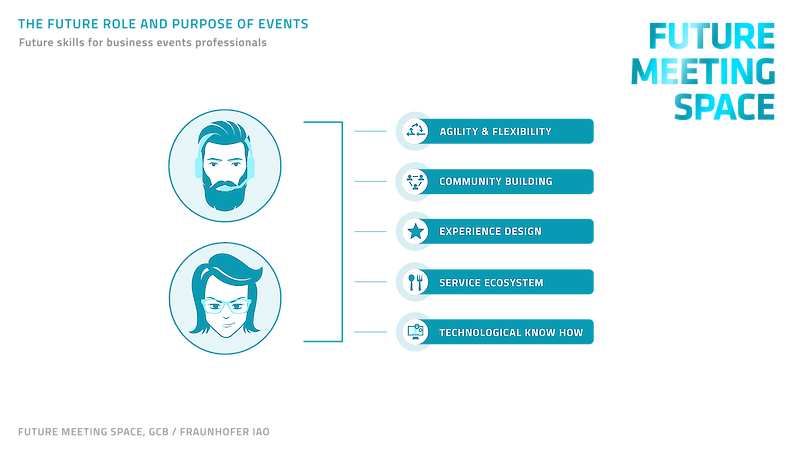 © GCB / Future Meeting Space
© GCB / Future Meeting Space
Lifelong learning has become something of a no-brainer. In the world we live in, who would still doubt the necessity for acquiring new skills throughout their professional life. At the same time, it often strikes me that this is about more than learning and might be better described as “lifelong changing”, in the sense of being capable and willing to change.
-

Full study: The Future Role and Purpose of Events
Download file
Secure Downloads
With our Secure Download we offer you the possibility to download documents (e.g. whitepapers and studies) free of charge. In order to receive the documents you give your consent that entitles us to inform you via email about GCB events and the meetings destination Germany. We only need your email address and your permission to send these emails. You can unsubscribe at any time.
The results of our latest Future Meeting Space (FMS) research on the “Future Role and Purpose of Business Events” exemplify this aspect very clearly when looking at the evolving job and skills profiles of event professionals. No matter which part of events is your professional realm, our new – hybrid – event world will bring a lot of change but, more importantly, also exciting opportunities to learn and grow. Below, I have picked one key aspect for event organisers, service providers and destination marketing organisations respectively which we identified in our FMS study to highlight where this journey will take us.
Event organisers become community builders
With events moving from one-off occurrences to year-round content hubs which (have to) engage the respective audience beyond the actual, date-based event, community-building will in future be a key aspect for event organisers to concentrate on. With the ultimate goal of creating loyal audiences, ongoing communication, particularly on social media, and delivery of relevant content and know-how need to become part and parcel of event organisation.
Apart from communication skills, this requires a deeper dive into the respective event topics. Event organisers should be up to date with trends and developments, and they will need a good network of experts to provide relevant input to be able to build and maintain a community that is active before, during and after events. Having said that, proper community management is time-consuming and realistically not something you just add on top of everything else you’re doing already. Therefore, working with professionals where needed, getting support, and assessing where to potentially shift focus to allocate more time to community building activities are part of the change process.
Event service providers move into the consulting space
If we’re looking at technical service providers in the event space, their work will considerably be impacted by the increasingly hybrid world of events. By now, we all know that the mix of physical and digital spaces for attendees to take part in events is here to stay, irrespective of whether this is actually a Covid-induced necessity or not. Technical service providers need to understand how hybrid events work and what specific types of technical equipment are needed. They need to be aware of the necessity for creating a meaningful combination of physical and digital worlds and how to support this with appropriate tools.
Ultimately, hybrid event set-ups and the challenges they come with of engaging and connecting people who are, literally, in different worlds require technical service providers who focus on finding solutions to meet the differing requirements of virtual, physical and hybrid participants. In other words, consulting as opposed to simply delivering a certain piece of tech and making sure that it works comes to the foreground and creates opportunities for creative suppliers.
Destination marketing organisations finetune their skills as regional scouts
The decision to attend physical events will in future be a very deliberate one, i.e., your audience still wants and needs real-life experiences (probably more than ever) but will at the same time very carefully consider whether any given physical business event actually delivers added value in comparison to a digital offering. This is where the resources of any given geographical space with all its infrastructure components that feed into business events come in. The challenge for DMOs will be to more than ever identify what is special about a region to package these offerings for business events that have real impact. To that end, they should see themselves as regional trend scouts and become an integral part of their ecosystem – be it from a business, cultural or academic perspective – to be able to easily tap into it and create links with stakeholders in the event industry. This might well require taking on additional skill sets and add the know-how of specific local experts to the team, ultimately enabling DMOs to better fulfil their role of ecosystem managers.
